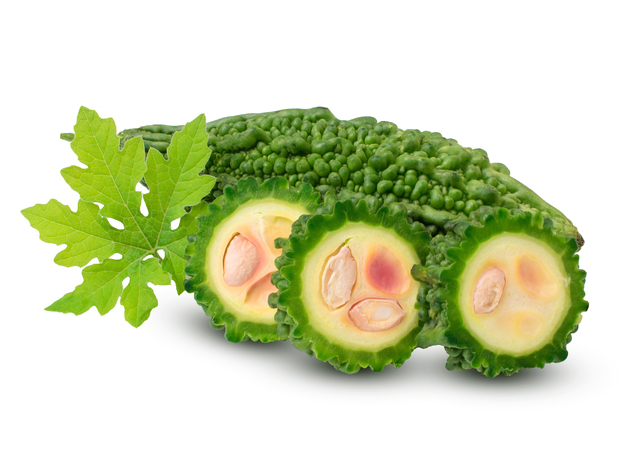Are you looking for effective home remedies to lower diabetes naturally? While there is no definitive cure for diabetes, if you can keep your blood sugar levels under control, you can live a normal and healthy life.
These remedies are not stand-alone natural treatments BUT should be used as part of a holistic management plan that includes a healthy diet, regular exercise, and medication as prescribed by a healthcare provider.
Hence you must discuss with your doctor before using any of these remedies as they may interact with diabetes medications. In addition, committment and consistency in their use are required to reap benefits.
Here are some of the ways to control your blood sugar levels. These home remedies to control diabetes are inspired by eMediHealth Amy Freeth, MD, Endocrinologist. Also check out the FOUR popular Cookbooks recommended.
Home Remedies to Lower Diabetes – Lifestyle and Diet
Lifestyle changes can significantly help in managing diabetes. These changes involve eliminating activities that may harm your health and replacing them with habits that promote well-being.
Adjusting your diet is key to keeping blood sugar levels stable. People with diabetes are encouraged to be mindful of their food choices, maintain appropriate portion sizes, and limit foods with a high glycemic index.
The glycemic index measures how quickly a food raises blood sugar levels. To make healthier meal choices, avoid processed foods and opt for whole, fiber-rich options.
Adhere to the following Do’s and Don’ts
Home Remedies to Control Diabetes: Avoid / Limit
- If you are a smoker, quit right away! Smokers have at least a 50% increased risk of diabetes than non smokers and a higher risk for complications.
- Limit consumption of alcohol to a minimum.
- Limit your intake of caffeine to a maximum of 4 cups a day.
- Avoid sodas, packaged juice with added sugars, and sugary snacks.
- Avoid sugary sauces by using fresh herbs and spices.
- As much as possible, steer away from eating processed fats (trans-fats especially) and limit your salt intake. Avoid deep fried foods and know that fast foods are not your friend!
- Reduce your intake of foods derived from animals such as poultry, eggs, red meat, and dairy.
- Limit your consumption of starchy foods with a high glycemic index such as pasta, noodles, bread, rice, processed oatmeal, white potatoes, sugary foods, and beverages.
- Avoid using sauces, marinades, and dips that are high in fat and loaded with preservatives, additives, sugar, and salt.
Home Remedies to Control Diabetes: Things you Must Do’s
SLEEP: Try to get 7–8 hours of sound quality sleep daily.
NUTRITION
- Maintain a healthy body weight through a healthy diet and exercise. Start by asking your doctor what would be a healthy weight to strive for and set incremental goals to get there.
- Monitor your blood sugar, weight, blood pressure, and cholesterol levels on a regular basis.
- Incorporate a large section of your diet with foods with a low glycemic index such as non-starchy vegetables including green beans, broccoli, cabbage, and carrots
- Include roasting, broiling, grilling, and barbequing in your cooking practices
- Choose lean meat, fish, tofu, and lentils as protein sources and pair them with lots of colorful vegetables.
- Eat fiber-rich foods such as whole grains, colorful vegetables, and fruits such as blueberry, strawberry, apples.
- Choose expeller-pressed olive oil and incorporate healthy fats such as avocados, nuts, nut butter, flaxseeds and flaxseed oil, and chia seeds.
- Incorporate okra in your diet to reduce glucose levels. Okra can be consumed whole, by roasting the seeds and soaked overnight to create okra water much like a tea. Okra has lots of properties in the form of vitamins and minerals and is also high in fiber and antioxidants.
- Use Stevia as a sugar substitute.
- Include a moderate quantity of white vinegar and apple cider vinegar in your meal preparations.
SPICES
- Use garlic in your diet because it has been shown to help with various health benefits including lowering blood glucose levels. It has antimicrobial, prebiotic, anticancer, antimutagenic, antioxidant, and immune-boosting properties, which can be particularly useful in managing diabetes. Based on the method of ingestion — raw, cooked, dehydrated garlic powder, garlic extract, or garlic oil, efficacy will be varied.
- Incorporate ginger in your diet.
- Turmeric is known to help fight oxidative stress, reduce the risk of dementia, decrease the rising sugar and lipid levels in the blood, which may eventually help curb the harmful effects of diabetes. You can add turmeric to your tea, milk, or stews
LIFESTYLE
- Vitamin D helps with insulin production in the body. Spend some time daily in the sunlight to reap its benefits or take a supplement as recommended by your doctor.
- Keep yourself hydrated with water.
- Stress may be the cause of your increased blood sugar level. Try relaxation techniques such as deep breathing and meditation or listen to soothing music to calm yourself. Create a daily practice of relaxation and perform mindfulness techniques throughout your day.
Physical Activity
Engaging in regular exercise is one of the simplest home remedies to lower diabetes. It helps stabilize blood sugar levels by promoting glucose uptake into cells, thereby lowering blood sugar.
Physical activity also plays a key role in managing factors critical to diabetes progression, such as maintaining a healthy weight, reducing blood pressure, and lowering triglyceride and blood sugar levels.
In addition, regular exercise helps reduce stress and improves cholesterol balance by increasing good cholesterol (HDL) and lowering bad cholesterol (LDL).
It also reduces insulin resistance and lowers the risk of obesity, weight gain, and cardiovascular issues associated with uncontrolled diabetes.
Try to get at least 30 minutes of exercise 3- 5 days a week, or break it into two or three shorter sessions of 10–15 minutes throughout the day.
Bitter Gourd (Bitter Melon)
Bitter what? When you are thinking of home remedies to lower diabetes, bitter gourd is one which is commonly discussed
Bitter gourd, is a tropical and subtropical vegetable widely used in Asian, African, and Caribbean cuisines. It has a distinctively bitter taste and resembles a cucumber with a warty surface. Both the fruit and seeds are used in cooking and traditional medicine due to their potential health benefits.
One of the most well-known benefits of bitter gourd is its ability to help manage blood sugar levels. It contains bioactive compounds like charantin, polypeptide-p, and vicine, which mimic insulin’s effects and enhance glucose utilization in cells.
Consult your healthcare provider before using bitter gourd as it could potentially interact with medications for diabetes, because it may cause hypoglycemia.
Aloe Vera Juice
Aloe vera juice may help type 2 diabetics manage their condition. Aloe vera contains compounds like polysaccharides and phytosterols, which have been studied for their potential to regulate blood sugar levels.
Aloe vera has been shown to improve insulin sensitivity and enhance the body’s ability to use glucose effectively.
The juice is made from the inner filling. You can add its juice to smoothies, fruit juices, or drinking water.
Aloe vera juice can have a laxative effect, so consume it in moderation, as excessive consumption may cause diarrhea or gastrointestinal discomfort.
Cinnamon
Fresh cinnamon contains bioactive components that may help reduce blood sugar levels.
Be wary of commercial cinnamon (Cassia cinnamon) because it contains excessive quantities of the bioactive compound – coumarin, which can be toxic and cause liver damage. The safer option is Ceylon cinnamon – true cinnamon.
Cinnamon can improve the body’s sensitivity to insulin, which allows cells to use glucose more efficiently. This may help reduce insulin resistance, a key issue in type 2 diabetes. It also helps lower blood sugar. Cinnamon can be added to a variety of foods, desserts, salads, and teas/beverages.
Fenugreek Seeds
Fenugreek seeds? What on earth are these?
While you may never have heard of these seeds before, they are one of the home remedies to lower diabetes that make the list for discussion.
The seeds have a slightly bitter, nutty flavor and are rich in fiber, vitamins, and minerals. In traditional medicine, particularly Ayurveda and traditional Chinese medicine, fenugreek seeds have been used for various health conditions.
Fenugreek seeds are well-known for their ability to help regulate blood sugar levels.
They contain soluble fiber, which helps slow down the digestion and absorption of carbohydrates, thereby improving insulin sensitivity and lowering blood sugar spikes.
Black Cumin Seeds
Black cumin seeds have been traditionally used for medicinal purposesin Middle Eastern and South Asian cultures. Recent research has shown that they can provide several benefits for those with type 2 diabetes, in improving blood sugar regulation.
They reduce insulin resistance, support pancreatic function and help manage related complications.
Black cumin seeds can be added to food, mixed with honey, or taken as a supplement (capsules or oil), while the ground seeds can be sprinkled over dishes or mixed into smoothies.
Powdered Indian Gooseberry Fruit (Amla)
Indian Gooseberry, also known as Amla (Phyllanthus emblica), is a potent medicinal fruit widely used in Ayurvedic medicine. When consumed as a powder, it can provide several health benefits, particularly for people with diabetes.
It supports the pancreas in producing insulin and improves the body’s response to insulin. This is particularly beneficial for people with type 2 diabetes, where insulin resistance is a key issue.
Amla is rich in vitamin C and other antioxidants, which help reduce oxidative stress which can damage cells and contribute to complications associated with diabetes, such as heart disease, nerve damage, and kidney issues.
Amla can be mixed with water, juice, or added to smoothies.
Recommended Supplements
Certain supplements may help manage blood sugar levels, improve insulin sensitivity, and reduce the risk of diabetes-related complications. However, supplements should be used as part of an overall management plan that includes diet, exercise, and prescribed medication.
While a list of them are provided here, always consult with your healthcare provider before starting any supplements to avoid interactions with diabetes medications or potential side effects.
Supplements that may be recommended by your healthcare provider include Chromium, Magnesium, Alpha-Lipoic Acid (ALA), Berberine, Cinnamon, Vitamin D, Omega-3 Fatty Acids, Coenzyme Q10, Probiotics, and Fenugreek.
Magnesium-rich foods (like leafy greens, nuts, and seeds) can also help boost magnesium levels naturally.
Conclusion – Home Remedies to Control Diabetes
This list of 8 home remedies to lower diabetes should only serve as a guide. Always consult with your healthcare provider before using any of them to avoid interaction with any diabetes medications you may be taking.
Do you know of any other home remedies to lower diabetes?
Related Topics
- Type 2 Diabetes in Seniors: Symptoms and Proven Tips
- Uncontrolled Diabetes and the Brain – 8 Deadly Effects
- Deep Relationship Between Stress and Diabetes: 5 Impacts
- Diabetes and Leg Cramps: 5 Surprising Facts
FAQ for Home Remedies to Lower Diabetes
What foods can naturally lower blood sugar?
Leafy greens, nuts, berries, and oats can help lower blood sugar by providing fiber, antioxidants, and slow-release carbs.
Can apple cider vinegar reduce blood sugar levels?
Yes, apple cider vinegar may improve insulin sensitivity and lower post-meal blood sugar spikes when taken before meals.
Does drinking water help with diabetes?
Drinking water helps regulate blood sugar by flushing out excess glucose through urine, keeping you hydrated and reducing insulin resistance.
Can exercise lower blood sugar quickly?
Yes, moderate exercise like walking or yoga can lower blood sugar levels immediately by increasing insulin sensitivity and glucose uptake.
Is cinnamon effective in controlling diabetes?
Cinnamon may help improve blood sugar control by enhancing insulin sensitivity, but results vary and it’s not a substitute for medication.
What are the best home remedies to lower diabetes?
The best home remedies to lower diabetes include regular exercise, a low-carb diet, drinking fenugreek or cinnamon tea, consuming bitter gourd, maintaining a healthy weight, managing stress, and including fiber-rich foods like flaxseeds and leafy greens in your diet.
References
Greenman, D.E. (2018)10 Natural Home Remedies for Type 2 Diabetes https://www.stamfordhealth.org/healthflash-blog/diabetes-and-endocrine/type-2-diabetes-natural-remedies/






